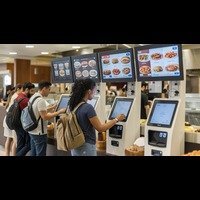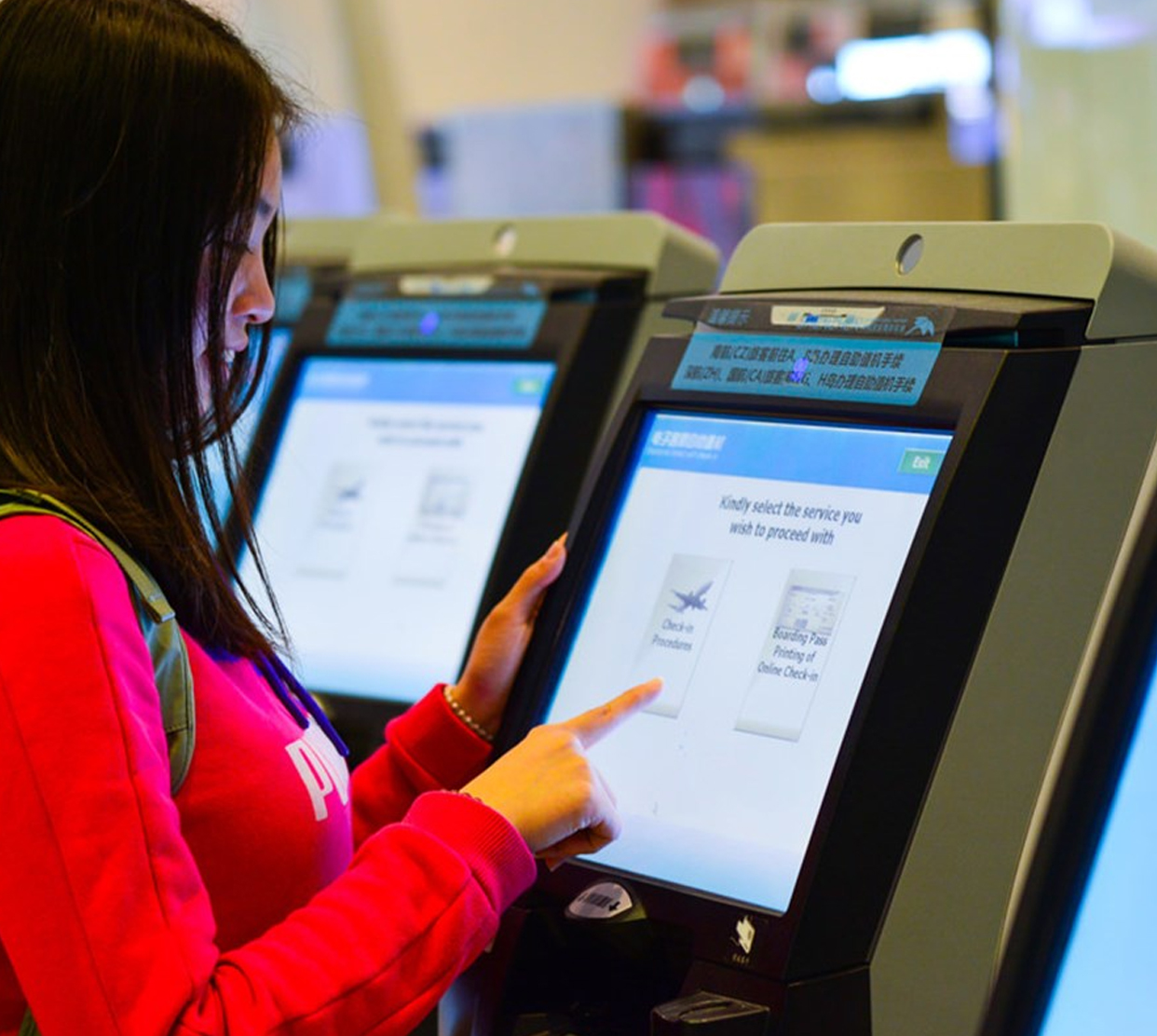The Future of Self-Service Kiosks in the Hospitality Industry – 2025 Outlook
Discover how self-service kiosks are revolutionizing the hospitality industry in 2025. From seamless check-ins and personalized guest experiences to AI-driven automation and secure transactions, these smart machines are enhancing efficiency and customer satisfaction. Explore the latest trends, benefits, and future advancements shaping the hospitality sector.


The hospitality industry is undergoing a technological transformation, with self-service kiosks emerging as a game-changer. As we approach 2025, these smart machines are poised to redefine guest experiences, streamline operations, and enhance efficiency. Hotels, resorts, restaurants, and entertainment venues are increasingly adopting self-service kiosks to meet the demands of a tech-savvy, convenience-seeking customer base.
The Rise of Self-Service Kiosks in Hospitality
In the post-pandemic era, customer preferences have shifted toward contactless and automated solutions. Self-service kiosks have gained significant traction, offering seamless check-ins, digital ordering, and real-time payment processing. Businesses within the hospitality sector are embracing these technologies to enhance customer experience and optimize operational efficiency.
According to industry reports, the global self-service kiosk market is projected to grow exponentially by 2025, driven by advancements in artificial intelligence (AI), machine learning, and IoT integration. In hospitality, these kiosks are no longer just a novelty but a necessity to keep up with evolving consumer expectations.
How Self-Service Kiosks Are Transforming Hospitality
1. Contactless Check-Ins & Check-Outs
Long queues at hotel reception desks are becoming a thing of the past. Self-service kiosks enable guests to check in and check out within minutes, reducing wait times and improving overall satisfaction. Equipped with AI and facial recognition, these kiosks provide a secure and personalized check-in experience. By 2025, more hotels are expected to integrate biometric authentication for enhanced security and convenience.
2. Streamlined Food Ordering & Payments
Restaurants and quick-service food chains are leveraging self-service kiosks to speed up ordering and minimize human errors. Guests can customize their meals, pay digitally, and receive real-time order tracking. This not only enhances efficiency but also reduces the workload for restaurant staff. As digital payments become more prevalent, kiosks will continue to support a wide range of payment options, including cryptocurrency and biometric payments.
3. Multilingual Support for Global Guests
Hospitality is a global industry, welcoming travelers from different linguistic backgrounds. Self-service kiosks equipped with multilingual interfaces make communication seamless, ensuring guests can access services in their preferred language. By 2025, advancements in AI-driven language translation will further improve cross-cultural interactions.
4. Upselling and Personalized Recommendations
Self-service kiosks are not just transactional tools; they are becoming intelligent marketing assets. Hotels and restaurants can use AI-powered kiosks to offer personalized upselling options based on guest preferences. Whether it’s room upgrades, special dining experiences, or exclusive services, these kiosks enhance revenue generation while providing value to guests.
5. Integration with Smart Room Controls
As the concept of smart hotels gains momentum, self-service kiosks are expected to integrate seamlessly with room automation systems. Guests will be able to use kiosks to control room settings such as lighting, temperature, and entertainment, creating a fully personalized experience.
6. Reduced Staffing Costs and Enhanced Workforce Efficiency
While automation does not replace human interaction entirely, it does optimize staffing requirements. Hotels can reallocate human resources to focus on personalized guest experiences rather than administrative tasks. This helps reduce operational costs while maintaining high service standards.
Challenges & Considerations for 2025
Despite the numerous advantages, the adoption of self-service kiosks in the hospitality industry comes with challenges:
-
Initial Investment Costs: Setting up advanced kiosks requires a substantial financial investment, but the long-term ROI outweighs initial expenses.
-
Cybersecurity Concerns: As kiosks handle sensitive customer data, ensuring robust cybersecurity measures will be crucial to prevent data breaches.
-
User Adoption & Training: While tech-savvy travelers appreciate automation, some guests may need assistance adapting to self-service technology. Proper user guidance and optional human assistance will be essential.
The Road Ahead: What to Expect in 2025
The next few years will witness an even greater integration of self-service kiosks in the hospitality industry. Here’s what we can expect by 2025:
-
AI-Powered Virtual Assistants: Interactive AI chatbots integrated with kiosks will provide real-time assistance, helping guests with queries, bookings, and recommendations.
-
Voice Recognition Technology: Hands-free interactions through voice commands will enhance accessibility and usability.
-
Blockchain Integration for Secure Transactions: Blockchain technology will be leveraged to ensure secure and transparent financial transactions via self-service kiosks.
-
Sustainability-Focused Solutions: The rise of eco-conscious travelers will drive demand for kiosks with sustainable features, such as paperless receipts and energy-efficient designs.
-
Expanded Use in Luxury & Boutique Hotels: High-end hotels will adopt self-service kiosks not just for efficiency but to offer a futuristic and tech-enhanced guest experience.
Conclusion
As 2025 approaches, self-service kiosks are set to become an indispensable part of the hospitality industry. From faster check-ins to personalized guest experiences, these machines are redefining convenience and efficiency. While challenges remain, advancements in AI, blockchain, and voice technology will drive further innovation, making self-service kiosk solutions a staple in hotels, restaurants, and entertainment venues worldwide. Businesses that embrace this transformation will gain a competitive edge, catering to the ever-evolving expectations of modern travelers.
The future of hospitality is automated, and self-service kiosks are leading the way.
What's Your Reaction?













